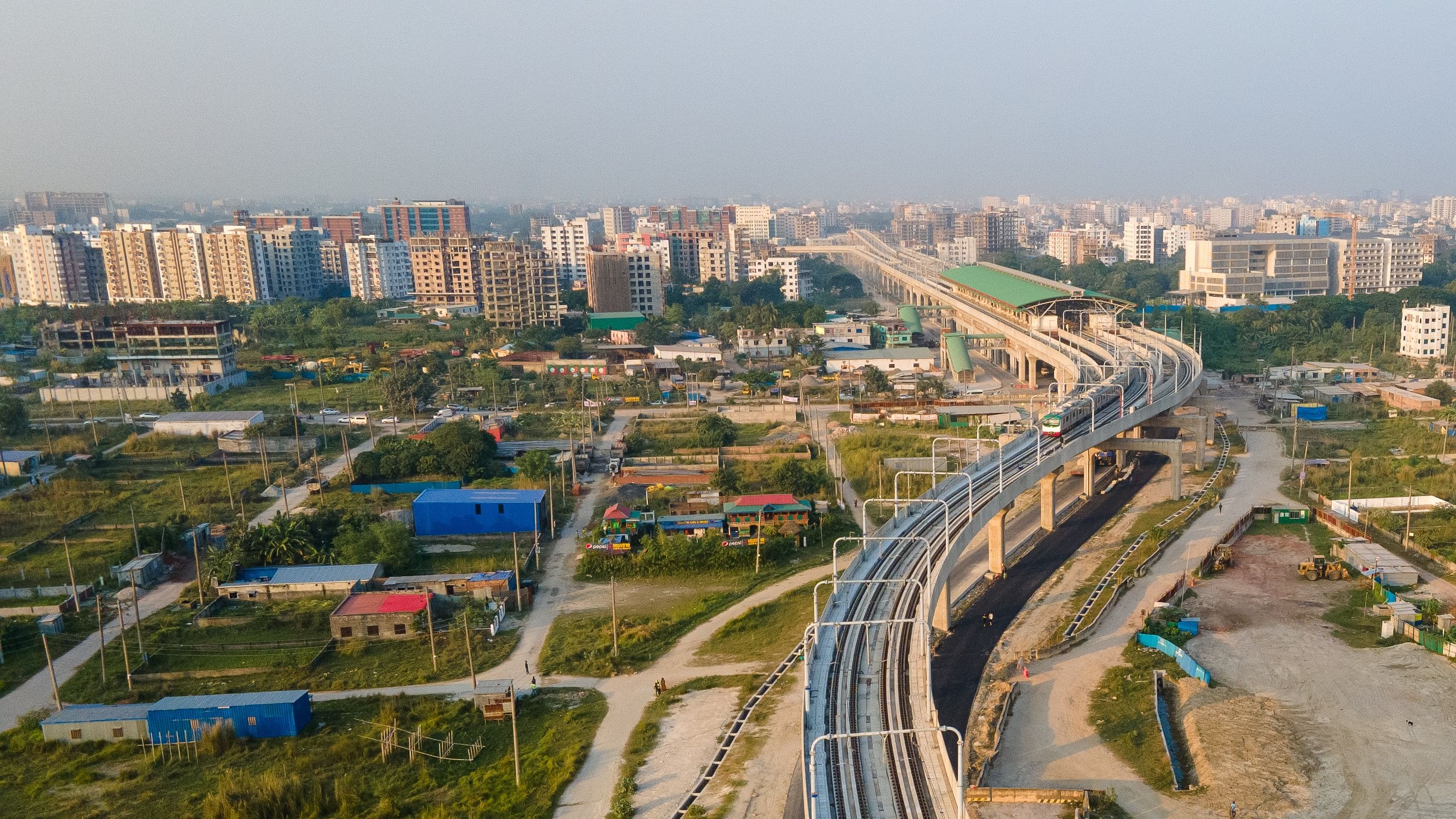
Dhaka Metro.
Credit: iStock Photo
Dhaka: Bangladesh Prime Minister Sheikh Hasina on Saturday opened the second phase of overhead metro rail service to ease Dhaka's notorious traffic jams, earning the city an ill repute of being the world’s slowest city.
“Today, we're so delighted,” Hasina said while opening the metro rail service between Uttara and Motijheel, which has eight stations and spans 9.53 kilometres.
On December 28 last year, Bangladesh launched its first metro rail service with Japanese assistance to ease commuting in the capital Dhaka, one of the most congested cities in the world.
State-owned Dhaka Mass Transit Company Ltd (DMTCL) has been entrusted with the task of operating the service built with Japanese technical and financial assistance.
“The commuters will be able to travel over 20-kilometre distance from Uttara area to Motijheel (business district) in little over 30 minutes,” DMTCL managing director M.N. Siddique told reporters.
The commuters usually needed over an hour to travel the distance during non-peak hours by road, while during the start or end of office hours, they often required as many as two and half hours.
The prime minister had opened the first phase of the route from Uttara to Agargaon on December 28 last year while opening the second phase on Saturday she boarded the metro and headed to Motijheel for another inaugural programme at the station.
According to officials concerned, each train can run at a speed of 100 to 110 kilometres per hour with 2,300 passengers. The service is designed to carry 60,000 passengers per hour and half a million passengers per day.
“One train will arrive at each station every four minutes,” Siddique said.
The metro rail system was built at a cost of Taka 334.720 billions (USD 4 million).
The Japan International Cooperation Agency (JICA) provided Taka 19,719 of the total amount while the rest was financed by Bangladesh’s own exchequer.
The service opened on Saturday is called “Mass Rapid Transit Line 6” or MRT Line-6 while five more routes will be opened in phases with one being an underground track. The routes are intended to bring Dhaka under an integrated network of metro rail services in subsequent phases covering areas on the city outskirts as well.
Hasina on Saturday also formally inaugurated the construction work of MRT Line-5 to build a 140-kilometre metro rail network in the capital and adjacent areas.
On Line 5 (North), the source said, the 20-km rail line with 14 stations is supposed to connect Hemayetpur and Bhatara via Gabtoli, Mirpur, and Gulshan.
Analysts say the opening of the service has a political connotation as unrest gripped the country with the main opposition Bangladesh Nationalist Party (BNP) launching a street campaign on October 28, demanding Hasina’s resignation ahead of the scheduled January general elections.
The premier and her ruling Awami League leaders on Saturday pointed out the government's achievements in infrastructure sectors particularly the opening of earlier this year the Padma Bridge connecting southwestern Bangladesh with the rest of the country through road and railways.
At least six people, including a policeman, were killed in the past week in Dhaka and elsewhere while over 200 others, including journalists, were injured across the country as the BNP and its far-right allies intensified their campaign for a non-party polls-time government.
The opening of the metro network came five weeks after the US-based National Bureau of Economic Research (NBER) dubbed Dhaka as the world’s “slowest city” and Flint City of Michigan in the US as the fastest one, in a study covering 1,200 cities in 152 countries.
According to Bangladesh University of Engineering and Technology (BUET) Dhaka city traffic speed in 2023 dropped to 4.5 km per hour from 21 km a decade ago despite government spending of a staggering Taka 28,000 crore to ease the notorious traffic congestions.
The Time magazine carried a report on the study in its latest September 29 issue saying: “Even at midnight, with few cars on the road, the trip in Dhaka — the slowest city in the world — is still 30 minutes, or three times as long as the trip in Flint -- the world’s fastest”.
The South Asian country earlier this month also opened a major part of its first elevated expressway connecting major city points and expects to complete the next phase by 2024 while both the infrastructures are expected to ease people's travel miseries in Dhaka.